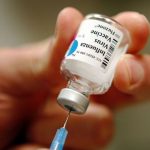Your Biological Age and Chronological Age May Differ
You might have heard that age is but a number—and that might be true. The human body has a chronological age, starting from the day you are born, and a biological age, that is separate from your chronological age. In other words, your biological age shows low slow or how fast your body is decaying and growing older. Lifestyle choices, such as activity levels, diet, smoking, drinking alcohol, and diseases will affect your biological age.

The reason for this would be telomeres, found at the end of chromosomes. When cells in the body divide, the telomeres start to unravel. Shortening telomeres are just one theory beyond aging, since shorter telomeres often correlate with graying hair, wrinkles, higher incidences of illness, and so on. That is why a healthier person might look like they are in their late twenties when their chronological age is 40 or why a man who smokes heavily looks 65 when he is really 35.
More from Things Health
-
13 Facts About The Flu Shot Everyone Should Know
There are a myriad of misconceptions when it comes to the flu vaccine. One of the most widely spread misconception is that you are given…
-
8 Busted Myths About Diabetes
Everyone has heard of diabetes, but many people don’t know much about the condition. There are a lot of myths circulating about diabetes, which can…
-
About Leukemia
Leukemia is generally known as blood cancer, where as if considered in its real terms leukemia is a cancer of the white blood cells as…
-
Interval Training May Help Reverse Aging Process
Many of us have tried high-intensity interval training at some point, even if it was just a boot-camp class our friend dragged us to. A…
-
The Rarest Medical Conditions in the World
Having a disease that is more rare does not necessarily mean that it is associated with more severe symptoms, even though this is often how…






